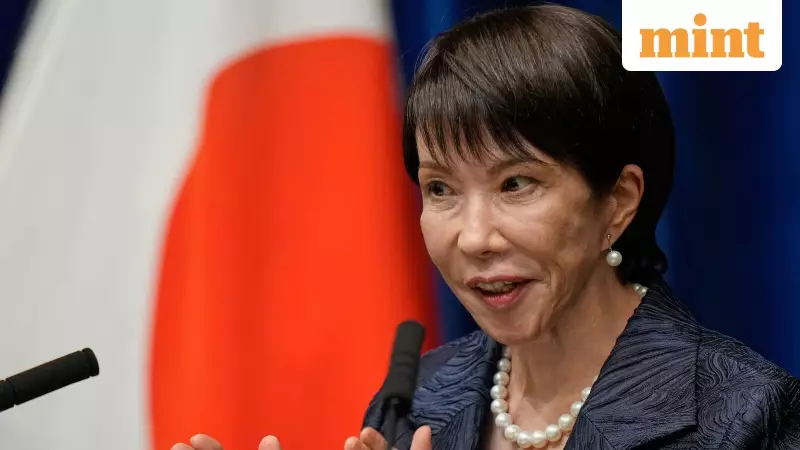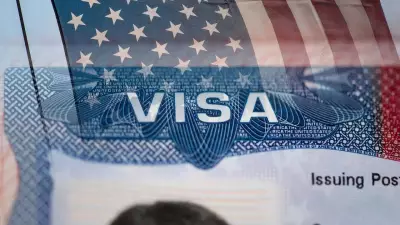
Takaichi's Economic Gamble: Abenomics in Troubled Waters
Japan's first female Prime Minister, Sanae Takaichi, has captured global attention with her dramatic political style and bold nationalist rhetoric. However, economists worldwide are growing increasingly concerned about her economic policies as she takes the helm of the world's third-largest economy during a period of significant challenges.
Takaichi's surprise victory in October's Liberal Democratic Party leadership race came through a campaign that promised something for everyone - lower taxes, increased government spending, and strong nationalist sentiments. Yet her unwavering commitment to Abenomics, the economic strategy pioneered by her mentor Shinzo Abe, appears dangerously out of step with current economic realities.
The Inflation and Debt Dilemma
Japan faces its highest inflation rates in decades, currently hovering around 3%, while grappling with a staggering debt-to-GDP ratio exceeding 250%. Despite these alarming figures, Takaichi has pressured the Bank of Japan to maintain ultra-low interest rates, a move that many experts consider economically irresponsible.
In October, just as the central bank appeared ready to finally raise rates after years of monetary easing, Takaichi's intervention prevented this crucial step toward normalization. This decision signals her determination to continue with aggressive monetary stimulus despite clear signs that inflation is becoming embedded in the economy, even affecting wage negotiations between employers and labor unions.
Market Reactions and Global Concerns
Financial markets have responded with mixed signals to Takaichi's economic approach. While stock markets rallied following her election announcement, bond yields have risen significantly, reflecting investor concerns about her abandonment of fiscal discipline.
More ominously, as noted by Wall Street Journal economics commentator Greg Ip, gold prices surged past $4,000 per ounce shortly after Takaichi's election. This development suggests that markets view her version of Abenomics as another example of populist leadership in a heavily indebted nation successfully coercing central bank compliance.
The Bank of Japan's October decision to maintain low interest rates confirms that Takaichi's influence is already taking effect. Since assuming office, she has further consolidated her control over economic policy by appointing dovish economists to Japan's top economic advisory panel, the Council of Economic and Fiscal Policy.
Political Style and International Relations
Takaichi's background as a television news presenter has equipped her with exceptional media skills, which she has used to dominate news cycles with controversial statements. Her comments about foreign tourists mistreating deer in her hometown of Nara and her refusal to retract these statements despite diplomatic concerns demonstrate her populist instincts.
More significantly, her November 7th declaration that Japan would militarily respond to any Chinese attack or blockade of Taiwan sparked immediate diplomatic tensions with Beijing, requiring senior Japanese officials to travel to China for damage control.
On the international stage, Takaichi successfully navigated her first major test by flattering US President Donald Trump during his state visit to Tokyo. Leveraging her connection to the assassinated former Prime Minister Abe, who was Trump's golfing partner, she gifted the American leader Abe's putter and a gold-leaf golf ball while securing trade agreements favorable to Japan.
However, these diplomatic successes may prove fleeting if her economic policies trigger instability. Japan has committed to billions in US investments and increased purchases of American agricultural products and energy, including soybeans, natural gas, and even pick-up trucks ill-suited to Japanese roads.
The Thatcher Comparison and Central Bank Independence
While Takaichi models herself after Margaret Thatcher, her approach to economic management differs significantly from the British leader's principles. Rather than embracing fiscal responsibility, Takaichi appears to be surrounding herself with yes-men who support her stimulus-focused agenda.
The appointment of former Bank of Japan deputy governor Masazumi Wakatabe to the economic advisory council is particularly telling. During his previous five-year term at the central bank, Wakatabe oversaw massive government bond purchases designed to stimulate Japan's stagnant economy.
Economic Revitalization Minister Minoru Kiuchi confirmed the administration's approach in a Reuters briefing, stating that council members were appointed specifically because they align with Takaichi's policy preferences. This not-so-subtle stacking of economic advisory bodies raises serious questions about the independence of Japan's economic institutions.
Legacy at Stake
While Takaichi's nationalist positions on China and her conservative social views, such as opposition to married couples having different surnames, may generate headlines, her economic management will ultimately define her legacy.
Her interference with central bank independence represents the most significant threat to Japan's economic stability. With inflation pressures building and debt levels at record highs, the continuation of Abenomics through massive monetary easing could have severe consequences for Japan's financial system and the global economy.
As Japan navigates this precarious economic juncture, the world watches to see whether Takaichi's populist economic instincts will prevail over sound financial management, potentially turning Japan's economic miracle into a cautionary tale about the dangers of political interference in monetary policy.





